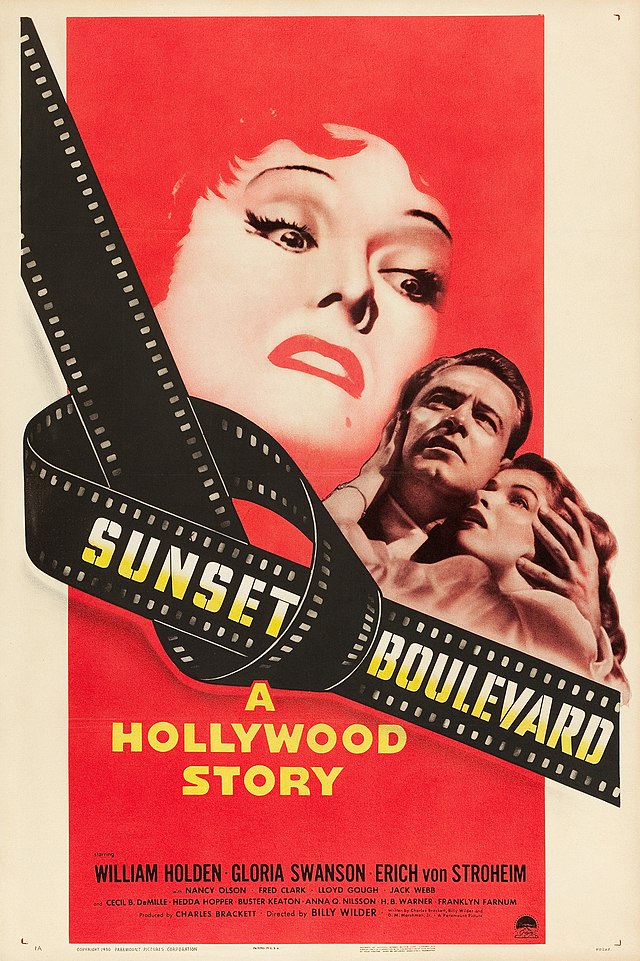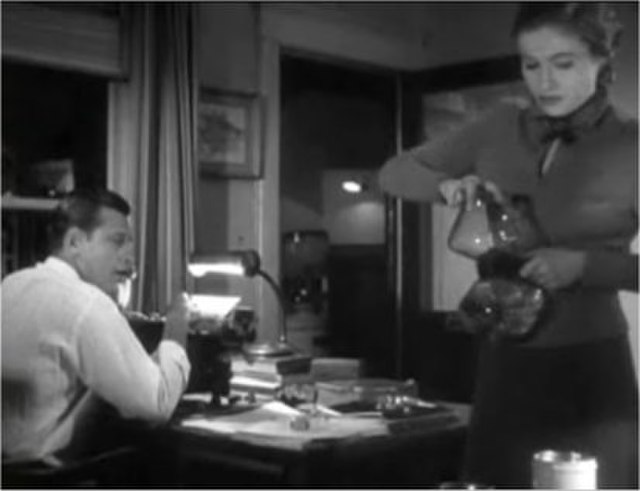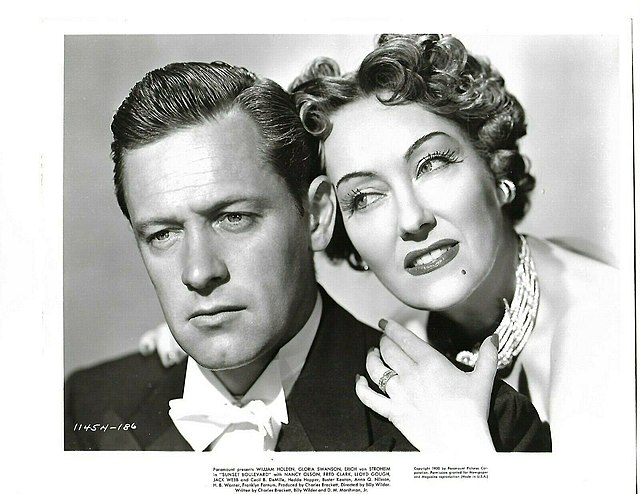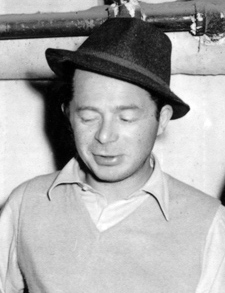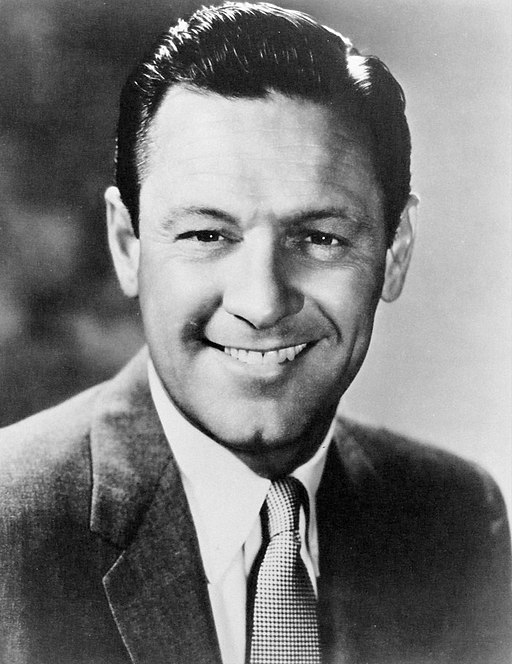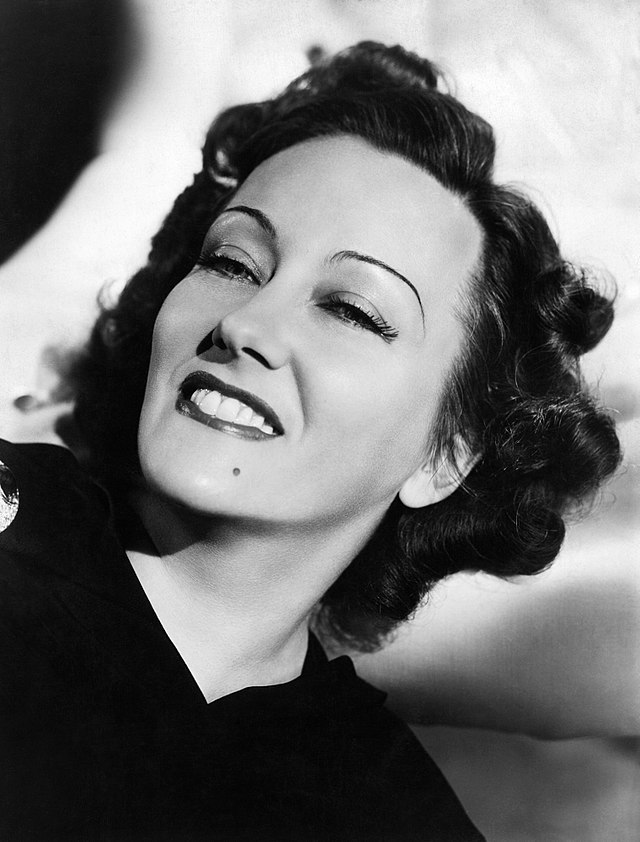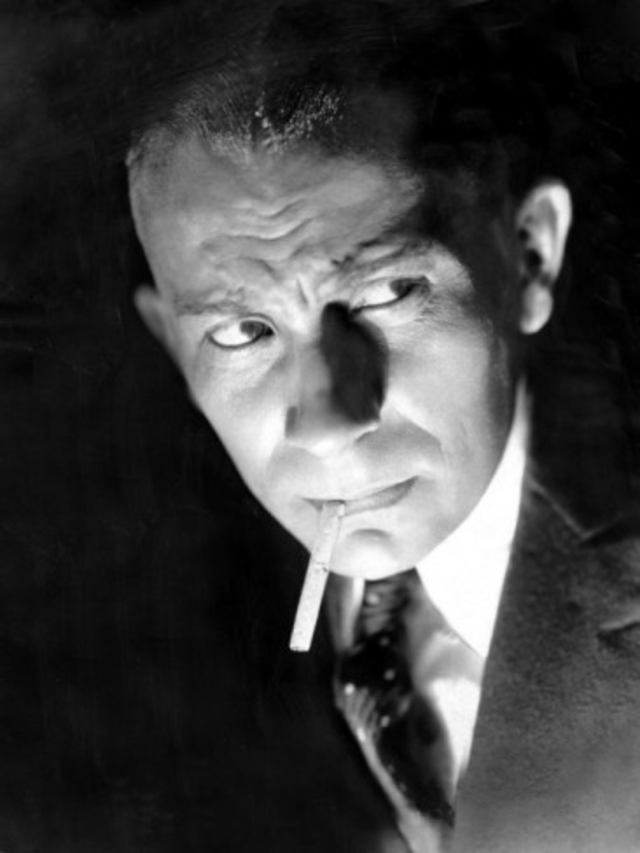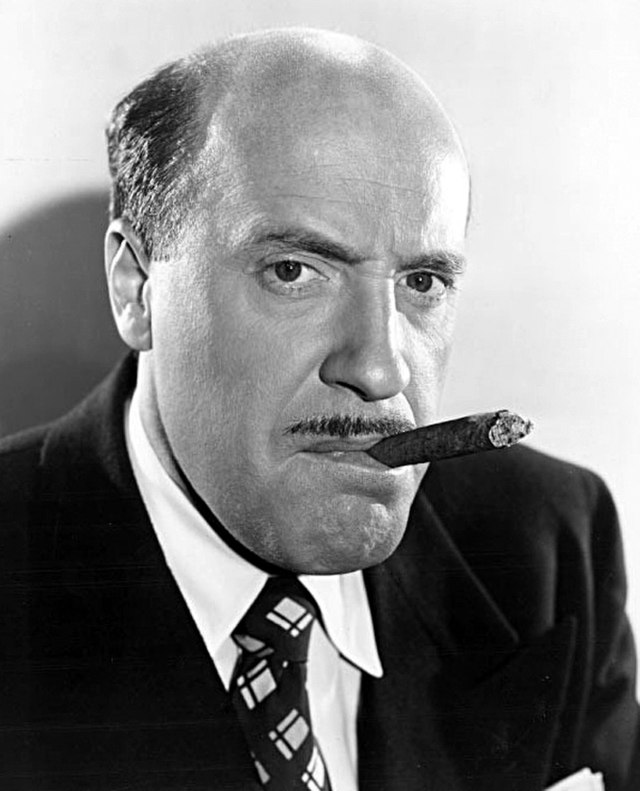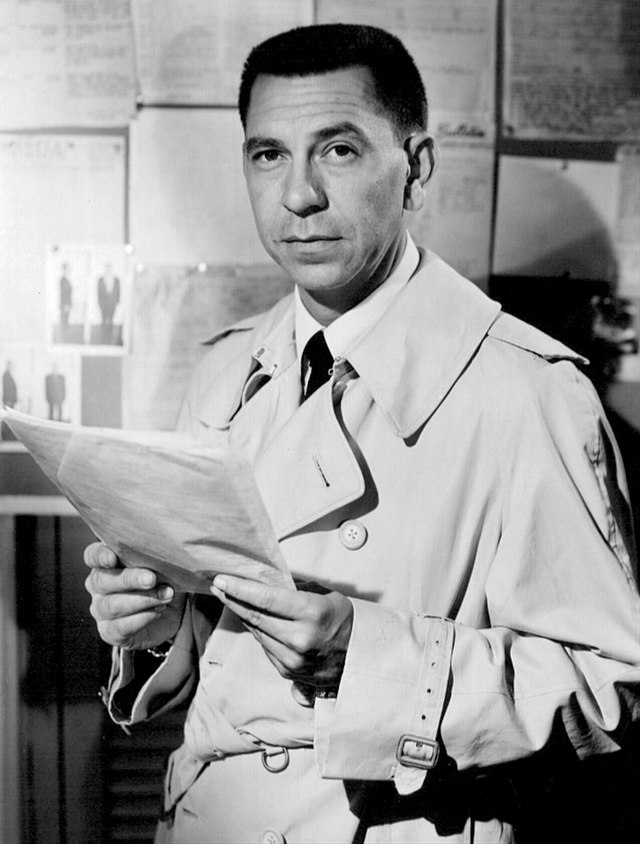Sunset Boulevard - 1950
back| Released by | Paramount Pictures |
| Director | Billy Wilder |
| Producer | Charles Brackett |
| Script | Billy Wilder, Charles Brackett, and D.M. Marshman Jr. |
| Cinematography | John F. Seitz, ASC |
| Music by | Franz Waxman |
| Running time | 110 minutes |
| Film budget | $1.75 million |
| Box office sales | $5 million |
| Main cast | William Holden - Gloria Swanson - Erich von Stroheim - Jack Webb - Fred Clark |
Sunset Boulevard
A Haunting Hollywood Tragedy about Fame, Illusion, and the Price of Relevance
Sunset Boulevard (1950), directed by Billy Wilder, is a haunting film noir about Joe Gillis, a struggling screenwriter who becomes entangled with Norma Desmond, a faded silent film star lost in delusion.
Living in her decaying mansion, Joe is drawn into her obsessive fantasy of a Hollywood comeback, leading to manipulation, moral compromise, and ultimately, his death. Narrated by Joe from beyond the grave, the film blends cynicism, tragedy, and dark satire to expose the cruelty of fame and the emptiness behind the Hollywood dream.
Its impact was profound—earning 11 Oscar nominations and cementing its place as one of cinema’s greatest works.
Wilder’s direction, Gloria Swanson’s towering performance, and the film’s critique of stardom and aging continue to influence filmmakers and resonate in modern portrayals of celebrity culture. Sunset Boulevard remains a timeless warning about the seductive—and destructive—power of illusion.
Related
Sunset Boulevard – 1950
Summary of Sunset Boulevard
The film opens with an iconic and startling image: a dead man floating face-down in a swimming pool. His voice narrates from beyond the grave—this is Joe Gillis, a struggling screenwriter in Hollywood who is about to recount the events that led to his death.
Desperate for money and work, Joe is dodging repossession agents when a blown tire forces him to turn off Sunset Boulevard into the driveway of what appears to be an abandoned mansion. There, he encounters Norma Desmond, a once-famous silent film star who has faded into obscurity but remains delusionally convinced that she is still beloved and relevant. Norma lives in the crumbling mansion with her loyal but eerie servant Max von Mayerling, who, it is later revealed, was once her director—and her first husband.
Norma mistakes Joe for a mortician arriving to handle her dead pet chimpanzee. When she discovers that he’s a screenwriter, she offers him a job: help her revise a massive screenplay she's written for a comeback vehicle (she calls it her “return”) to be sent to director Cecil B. DeMille, whom she believes is eagerly awaiting her triumphant return to the screen.
Joe, seeing a chance for stability, moves into her mansion and agrees to work on the script. As time passes, Norma becomes possessive, manipulative, and emotionally dependent on Joe. She showers him with gifts and clothes, creating a gilded cage. Joe, though initially reluctant, becomes increasingly entangled in her world, losing both his independence and dignity.
Meanwhile, Joe begins a clandestine collaboration with Betty Schaefer, a young and idealistic script reader who believes in Joe’s writing potential. They begin to fall for each other. When Norma learns of this relationship, she spirals into a jealous rage and attempts suicide to keep Joe from leaving her.
Eventually, Joe decides to break free. In a climactic confrontation, he tells Norma the truth: her script is unfilmable, DeMille is not interested, and her fame is long gone. He plans to leave and return to his old life—even if it’s penniless. Norma, in utter denial and emotional ruin, shoots him in the back as he walks away, and he falls into the pool—the very image that opened the film.
The final scene is among the most legendary in film history: reporters and police swarm the house, and Norma, now fully detached from reality, believes she is on a film set. As Max sets the scene like a director, Norma descends the staircase, steps before the newsreel cameras, and utters the chilling line:
"All right, Mr. DeMille, I'm ready for my close-up."
Analysis of Sunset Boulevard
Hollywood as a Gothic Landscape
Billy Wilder paints a sinister portrait of Hollywood, not as a land of dreams, but as a graveyard of ambition and forgotten fame. The decaying mansion, complete with a butler who plays organ music and a dead chimpanzee, evokes a Gothic atmosphere. The film blends noir with horror, using dramatic lighting, shadows, and a haunted-house setting to symbolize Norma’s mental deterioration and the decay of old Hollywood.
Norma Desmond: The Face of Obsolete Fame
Norma represents the tragic relic of the silent film era. Her exaggerated mannerisms, stylized speech, and obsession with her own image highlight her disconnect from reality. Gloria Swanson’s performance is both grand and pitiful; she was herself a former silent film star, adding a meta-layer to her portrayal. Norma isn't merely delusional—she’s a woman discarded by the industry that once idolized her, making her both villain and victim.
Joe Gillis: The Moral Compromise
Joe is cynical and opportunistic, a man who has lost his artistic idealism in the face of poverty. His willingness to become Norma’s “kept man” symbolizes the compromises many artists make in the pursuit of success. His voiceover, filled with wit and fatalism, places him squarely in the noir tradition—a doomed antihero watching his life unravel in retrospect.
Max von Mayerling: Devotion as Madness
Max’s loyalty is unsettling. His continued service to Norma—writing her fan letters to maintain her illusion of fame—reflects a disturbing co-dependence. He embodies the destructive nature of enabling someone’s fantasy, and his character suggests how Hollywood not only creates stars but sometimes quietly facilitates their descent.
Themes and Symbolism
- Illusion vs. Reality: Norma lives in a fantasy where she’s still a star. The industry, for all its glamour, thrives on illusion, and the film tears away that mask.
- Aging and Obsolescence: Sunset Boulevard explores how Hollywood glorifies youth and discards the old. Norma’s invisibility is as painful as her madness.
- Death and Decay: From the taxidermied chimp to the rotting mansion and Joe’s literal narration from the grave, the film is obsessed with death—especially the death of relevance and identity.
- Gender and Power: Norma is a woman with wealth and control, but ultimately, she’s vulnerable in a male-dominated industry. Her power is tragic, not liberating.
Legacy and Impact
Sunset Boulevard is a searing critique of Hollywood’s treatment of its artists, especially women. It’s one of the few films from its era that dares to show the industry as predatory, fickle, and cruel. It has influenced countless films about fame and its discontents, including Mulholland Drive, Black Swan, and Boogie Nights.
It was nominated for 11 Academy Awards and won three: Best Writing (Story and Screenplay), Best Art Direction, and Best Score. It remains a cornerstone of American cinema and a towering achievement in the film noir genre.
Main Cast
- William Holden as Joe Gillis – a struggling screenwriter and the film’s narrator
- Gloria Swanson as Norma Desmond – a faded silent film star lost in delusion
- Erich von Stroheim as Max von Mayerling – Norma’s loyal butler, former director, and ex-husband
- Nancy Olson as Betty Schaefer – a young script reader with ambitions of writing
Supporting Cast
- Fred Clark as Sheldrake – a Paramount producer
- Lloyd Gough as Morino – a man trying to repossess Joe’s car
- Jack Webb as Artie Green – Joe’s friend and Betty’s fiancé
- Franklyn Farnum as Undertaker (uncredited) – briefly appears during the opening sequence
- Larry J. Blake as 1st Finance Man (uncredited)
- Charles Dayton as 1st Salesman (uncredited)
- Cecil B. DeMille as himself – legendary director, portrayed in a real cameo at Paramount Studios
- Hedda Hopper as herself – famed gossip columnist, also appearing in the final scene
Cameos by Silent Film Era Stars (as Norma Desmond's bridge partners)
- Buster Keaton as himself (uncredited)
- Anna Q. Nilsson as herself (uncredited)
- H.B. Warner as himself (uncredited)
Classic Trailer Sunset Boulevard
Billy Wilder’s Direction: A Study in Controlled Irony and Moral Clarity
Billy Wilder’s direction in Sunset Boulevard is at once subtle and bold, laced with dark humor, irony, and pathos. He constructs the film as both a noir thriller and an operatic character study, but behind its shadowy aesthetic lies a sharply critical lens aimed directly at the heart of Hollywood. His brilliance lies not just in how he tells the story—but in how he frames the story’s tone, structure, and emotional truth.
A Director as Narrator of Decay
Wilder’s greatest achievement in Sunset Boulevard may be how effortlessly he combines genres. The film is part film noir, part Hollywood satire, and part psychological horror, yet never feels disjointed. The opening shot—a dead body floating in a swimming pool—signals the fatalistic noir tone. But instead of focusing on crime or justice, Wilder focuses on ruin—both personal and artistic.
The use of voiceover narration by the deceased Joe Gillis is classic noir, but Wilder gives it a ghostly detachment. Joe’s deadpan wit overlays scenes of moral compromise and emotional disintegration, making the audience both complicit and observant. This omniscient narration, delivered posthumously, allows Wilder to create a tone that is both intimate and haunting.
Mastery of Tone: Tragic and Darkly Comic
Wilder balances Sunset Boulevard on the edge of tragedy and grotesque comedy. Norma Desmond is deeply tragic—a woman abandoned by the system that once glorified her—but she’s also at times absurd in her theatrical delusions. Rather than mocking her, Wilder allows both truth and dignity to coexist with her madness.
Take the final scene, where Norma slowly descends the staircase to deliver her “close-up” line. Wilder stages it like a ritual—a performance she has rehearsed in her head for years. His direction here is filled with empathy and dread: it is not a victory, but a full mental collapse masked as triumph. Wilder doesn’t undercut her moment—he heightens it with shadows, close-ups, and Max's eerie “directing.” He wants us to feel horror and heartbreak.
Visual Composition and Mood
Though Wilder was never known for flamboyant camera tricks, his visual storytelling in Sunset Boulevard is rich with intention. Collaborating with cinematographer John F. Seitz, Wilder crafts a world of light and shadow that mirrors psychological states. The Desmond mansion becomes a tomb: dark, ornate, and filled with relics of a past era. It’s as much a character as any actor in the film.
- The decaying luxury mirrors Norma’s state of mind—opulent but rotting.
- Stark lighting, heavy drapes, and exaggerated shadows amplify the sense of isolation and delusion.
- Joe’s living quarters, initially humble and sunlit, grow darker as he becomes more entangled with Norma.
Wilder’s direction is not flashy, but it’s always precise—every frame supports the story and deepens the emotional resonance.
Metacinema: Hollywood Turned Inward
What makes Wilder’s approach particularly daring is his self-reflexivity. Wilder is not merely telling a story set in Hollywood—he is diagnosing Hollywood. By casting Gloria Swanson (a real silent film legend), Erich von Stroheim (a pioneering director himself), and even Cecil B. DeMille as himself, Wilder collapses the boundary between fiction and history. The line “I am big—it’s the pictures that got small” rings with painful truth, not satire.
Wilder's Hollywood is not a machine of dreams, but a machine that chews up and forgets. The irony is not lost on him—and he embeds that critique into every choice: the washed-up stars playing bridge, the coldness of studio lots, the callousness of studio executives. Yet he never turns it into a lecture. His critique is rooted in story and character, not ideology.
Direction of Actors: Controlled Grandeur
Wilder’s work with actors in Sunset Boulevard is some of the most skillful of his career. He coaxes a performance from Gloria Swanson that walks a razor-thin line between over-the-top and heartbreaking. He allows her theatricality because it’s true to her character—but keeps it from turning into camp.
William Holden’s performance, meanwhile, is grounded, cynical, and self-aware—he’s the perfect narrator of this grand, decaying tragedy. Wilder directs him with restraint, letting Holden’s eyes and voice convey everything Joe tries to conceal.
Erich von Stroheim’s Max is a masterclass in understatement—his quiet devotion is disturbing and moving. Wilder pulls back from melodrama here, letting Max’s sorrow emerge quietly beneath the surface.
Conclusion: A Director Without Illusions
Billy Wilder directs Sunset Boulevard with cold clarity and poetic irony. His touch is unsentimental but not cruel; he shows how ambition, vanity, and desperation can twist human beings into distorted versions of themselves. Yet he never loses sight of their humanity.
In the end, Wilder’s real subject is not just Hollywood, but the cost of illusion—what happens when the dream becomes a trap. His direction ensures that Sunset Boulevard is not only a brilliant film—but a timeless meditation on art, fame, and the fragility of identity.
William Holden in Sunset Boulevard
A Performance of Quiet Desperation and Fatalistic Charm
William Holden’s portrayal of Joe Gillis is marked by a restrained intensity, a combination of cool detachment and suppressed desperation. Under Billy Wilder’s direction, Holden delivers a performance that anchors Sunset Boulevard—he is the audience’s guide through the madness, the one sane voice in an increasingly distorted world. And yet, he is not a hero. Holden understands this, and crafts Joe as morally ambiguous, emotionally guarded, and ultimately doomed.
The Voice of the Dead: Narration with Cynicism and Bite
From the moment we hear Joe’s voice from beyond the grave, Holden’s tone sets the film’s worldview: wry, jaded, and unsentimentally sharp. He delivers the narration with dry wit and a sense of bitter irony, using it not just to explain the plot, but to reveal his internal collapse.
- His cadence is calm, but never cold.
- His words carry a subtle self-loathing, as if he sees the farce he’s become.
- The voiceover performance feels lived-in—Holden gives Joe a moral weariness that doesn’t ask for sympathy, but earns it anyway.
Wilder’s script is filled with sardonic brilliance, but it’s Holden’s delivery that makes it land—balancing intellect, sarcasm, and resignation with remarkable ease.
Playing the Passive Protagonist: Reaction as Performance
Joe Gillis is a character who is acted upon as much as he acts. He is pulled into Norma Desmond’s world, tempted by her wealth and manipulated by her affection. In scenes with Gloria Swanson’s overpowering Norma, Holden doesn’t try to match her flamboyance. Instead, he reacts—quietly, warily—allowing the audience to feel his discomfort and inner conflict.
- When Norma makes grand declarations, Holden answers with slight glances, tight smiles, or clipped replies.
- He plays Joe as a man constantly measuring how far he’s willing to go—whether it’s accepting a gold cigarette case or moving into her mansion.
- His silence often says more than his dialogue—watching Holden listen is as compelling as watching him speak.
Holden’s performance is reactive in the best way: he allows the chaos around him to define the tension within him.
A Man Trapped Between Survival and Self-Respect
One of Holden’s greatest strengths in this role is the subtle way he charts Joe’s moral erosion. Early in the film, Joe is cocky and sardonic—a guy who’s been beaten down by Hollywood but still has a flicker of ambition. As the story progresses, Holden lets that cockiness dissolve, replaced by a kind of defeated compliance.
- In his eyes, you can see Joe weighing the cost of compromise.
- Even as he accepts Norma’s gifts, there’s always a flicker of shame.
- His internal conflict—between the easy comfort Norma offers and the creative integrity he glimpses with Betty—is never overstated but always present.
Holden captures the painful truth that Joe knows he’s selling himself out, but doesn’t have the strength or opportunities to stop.
The Romance with Betty Schaefer: A Glimmer of Redemption
The scenes between Joe and Betty (played by Nancy Olson) offer a tonal shift, and Holden adjusts his performance accordingly. Around Betty, Joe softens. His wit becomes playful rather than bitter. His guardedness slips.
- Holden gives Joe moments of vulnerability—genuine laughter, hesitation, and longing.
- In his scenes with Betty, we see the writer he could have been, the life he might have had.
This contrast makes his eventual decision to walk away from Norma all the more tragic, and his death all the more bitter. Holden plays Joe’s final moments not with heroic defiance, but with quiet finality—a man choosing truth, even if it kills him.
The Power of Understatement
While Gloria Swanson gives a towering, operatic performance as Norma, Holden grounds the film with understatement. His energy is modern, cynical, and believable. He doesn’t indulge in melodrama; he plays Joe as a real man caught in an unreal situation.
- His body language is casual, often slouched or half-turned, as if Joe is always half-ready to leave.
- His expressions are subtle—tight-lipped smiles, darting eyes, slight head tilts.
- Even in moments of panic or confrontation, Holden never overacts—his intensity comes from stillness, not shouting.
This balance—letting the absurdity swirl around him while he stays internal—makes Holden’s performance the perfect counterweight to the film’s theatrical flourishes.
Conclusion: A Career-Defining Role
William Holden’s performance in Sunset Boulevard is one of layered brilliance. It is not showy, but it is unforgettable. He plays Joe Gillis as a man who begins as an opportunist and ends as a tragic figure—a hollow man whose slow unraveling is written across every weary glance and bitter line.
By trusting the audience to follow Joe’s descent without overemphasizing it, Holden delivers a performance of intelligence, restraint, and emotional truth. It earned him an Academy Award nomination and helped define his image as the sharp, world-weary leading man of 1950s American cinema.
Iconic Quotes from Sunset Boulevard
- “I am big. It's the pictures that got small.”
– Norma Desmond
Perhaps the most famous line in the film. Norma responds bitterly when Joe suggests that audiences might have forgotten her. It encapsulates her delusion and wounded ego—and Hollywood’s dismissal of its aging stars.
- “All right, Mr. DeMille, I’m ready for my close-up.”
– Norma Desmond
The chilling final line of the film, spoken as she descends into madness, fully consumed by fantasy. She mistakes newsreel cameras for a movie set. Wilder stages this as both a moment of grandeur and deep tragedy.
- “There's nothing tragic about being fifty. Not unless you try to be twenty-five.”
– Joe Gillis
Joe delivers this brutally honest line to Norma during a confrontation. It cuts through her illusion and touches on the film’s central theme: the denial of aging in a youth-obsessed industry.
- “The poor dope. He always wanted a pool. Well, in the end, he got himself a pool.”
– Joe Gillis (narrating his own death)
A perfect example of the film’s noir fatalism and gallows humor. Joe, now dead, reflects on his own shallow ambitions.
- “You’re Norma Desmond. You used to be in silent pictures. You used to be big.”
– Joe Gillis
His attempt at a compliment backfires, prompting Norma’s famous retort. It sets the tone for the entire relationship between them.
- “Funny how gentle people get with you once you’re dead.”
– Joe Gillis
This voiceover line early in the film plays with irony and detachment. Joe’s bitterness about Hollywood’s hypocrisy is evident even from beyond the grave.
- “You don't yell at a sleepwalker—he may fall and break his neck. That's it: she was still sleepwalking along the giddy heights of a lost career.”
– Joe Gillis (narration)
A poetic metaphor for Norma’s mental state. Wilder uses Joe’s narration to inject philosophical reflection into the story.
- “I didn’t know you were planning a comeback.”
“I hate that word. It’s a return.”
– Joe and Norma
This exchange shows how fiercely Norma clings to her past glory. The semantics matter to her—they are all she has.
- “You’re writing words, but you’re not saying anything.”
– Betty Schaefer (to Joe)
A key moment where Betty challenges Joe’s disillusionment and tries to revive his integrity as a writer.
- “They took the idols and smashed them—the Fairbankses, the Gilberts, the Valentinos! And who’ve we got now? Some nobodies!”
– Norma Desmond
A nostalgic and bitter monologue about how Hollywood discards its stars. It’s filled with both vanity and painful truth.
- “The whole place seemed to have been stricken with a kind of creeping paralysis — out of beat with the rest of the world, crumbling apart in slow motion.”
– Joe Gillis (about Norma’s mansion)
A haunting description that reflects not only the house, but Norma herself—frozen in time.
Classic Scenes
The Opening Scene: “The Body in the Pool”
What happens:
The film begins with the image of a man’s corpse floating face-down in a swimming pool. We hear Joe Gillis narrating in voiceover—from beyond the grave.
Why it’s classic:
- It’s one of the most famous openings in film history.
- The use of a dead narrator was unprecedented at the time and immediately establishes the film’s noir fatalism.
- Wilder’s visual choice of shooting the body through the rippling water and using a mirror device to capture the floating corpse adds a surreal, almost dreamlike quality.
Themes:
- Fate and inevitability
- Hollywood’s shallow dreamscape
- Irony and detachment
Norma Desmond’s Entrance: “You’re the Mortician?”
What happens:
Joe hides from repossession agents by pulling into what he thinks is an abandoned mansion. Inside, he’s mistaken for someone come to bury Norma’s pet chimp. Then, Norma Desmond appears—shrouded in black, looming on the staircase like a gothic queen.
Why it’s classic:
- Norma's dramatic entrance immediately defines her as eccentric, theatrical, and tragic.
- Wilder frames her in shadows and soft light, creating an aura of faded grandeur and mystery.
- This is the audience’s first full encounter with the surreal world she inhabits.
Themes:
- Isolation and delusion
- The decay of former stardom
- Macabre opulence
“I Am Big. It’s the Pictures That Got Small.”
What happens:
When Joe mentions she used to be big in the silent era, Norma famously retorts:
“I am big. It’s the pictures that got small.”
Why it’s classic:
- It’s the most quoted line from the film and one of the most famous in all of cinema.
- Gloria Swanson’s delivery is a masterclass in both denial and dignity—she believes every word.
- It embodies the pain of being discarded by an industry built on fleeting fame.
Themes:
- Vanity and delusion
- The cruelty of Hollywood
- The need for relevance and identity
The Paramount Studio Visit: Norma Meets DeMille
What happens:
Norma believes Cecil B. DeMille wants her for a comeback. Max arranges a visit to Paramount Studios. When she arrives, studio workers recognize her and swarm around her, but DeMille gently avoids telling her the truth: she’s no longer wanted.
Why it’s classic:
- This scene humanizes Norma. For a moment, she’s surrounded by admiration, and we glimpse the star she once was.
- DeMille’s respectful, yet pitying tone adds emotional complexity.
- The pathos is heartbreaking: she mistakes a lighting technician’s polite call for action as a real “return to the set.”
Themes:
- Nostalgia vs. reality
- How the industry patronizes and pacifies fading stars
- Fleeting glory
The New Year’s Eve Scene: Joe’s Loneliness
What happens:
Norma throws a private New Year’s Eve party—for just her and Joe. He realizes she believes they’re lovers. Uncomfortable and stunned, he leaves to find his friends.
Why it’s classic:
- It marks the turning point in their relationship: from professional to deeply personal (and disturbing).
- The quietness of the scene—Norma dancing, the empty room, her eyes full of hope—makes it especially haunting.
- Joe’s discomfort is palpable, and we see his inner struggle grow.
Themes:
- Emotional manipulation
- Co-dependency
- Illusions of love and control
The Final Confrontation and Joe’s Death
What happens:
Joe decides to leave Norma, exposing her delusions about her comeback and their relationship. As he walks away, she shoots him. He stumbles into the pool—completing the story that began with his narration.
Why it’s classic:
- The structure comes full circle—his death was the beginning and the end.
- The scene is tense, quiet, and inevitable. Wilder avoids melodrama, letting Joe’s departure feel like a slow detachment from madness.
- The shooting isn’t sensationalized—it feels cold and surreal.
Themes:
- The price of self-delusion
- The cost of trying to escape
- Poetic fatalism
The Final Scene: “I’m Ready for My Close-Up”
What happens:
With reporters and cameras swarming, Norma fully detaches from reality. Max “directs” her descent down the grand staircase, and she speaks to the camera as if it’s a film set:
“All right, Mr. DeMille, I’m ready for my close-up.”
Why it’s classic:
- One of the most iconic endings in film history.
- The lighting, camera angle, and Swanson’s glazed expression create a moment that’s tragic, theatrical, and unforgettable.
- Her descent into madness becomes her final, eternal performance.
Themes:
- Total collapse of reality
- Fame as identity
- Tragedy dressed as spectacle
Awards and Recognition
Academy Awards (Oscars) – 1951
Sunset Boulevard received 11 nominations and won 3 Academy Awards:
Wins:
- Best Writing, Story and Screenplay – Charles Brackett, Billy Wilder, and D.M. Marshman Jr.
- Best Art Direction – Set Decoration (Black-and-White) – Hans Dreier, John Meehan, Sam Comer, Ray Moyer
- Best Music, Scoring of a Dramatic or Comedy Picture – Franz Waxman
Nominations:
- Best Picture – Charles Brackett
- Best Director – Billy Wilder
- Best Actor in a Leading Role – William Holden
- Best Actress in a Leading Role – Gloria Swanson
- Best Actor in a Supporting Role – Erich von Stroheim
- Best Actress in a Supporting Role – Nancy Olson
- Best Cinematography (Black-and-White) – John F. Seitz
- Best Film Editing – Arthur P. Schmidt and Doane Harrison
Golden Globe Awards – 1951
Wins:
- Best Motion Picture – Drama
- Best Director – Billy Wilder
- Best Actress in a Leading Role – Drama – Gloria Swanson
- Best Original Score – Franz Waxman
Writers Guild of America Awards – 1951
Win:
- Best Written American Drama – Charles Brackett, Billy Wilder, and D.M. Marshman Jr.
British Academy Film Awards (BAFTA) – 1952
Nomination:
- Best Film from any Source
National Board of Review – 1950
Win:
- Top Ten Films of the Year – Included Sunset Boulevard
- Best Actress – Gloria Swanson (tied with Bette Davis for All About Eve)
Legacy Honors and Recognitions
- National Film Registry: Selected by the Library of Congress in 1989 as being "culturally, historically, or aesthetically significant."
- AFI Rankings:
- #12 on AFI's 100 Years…100 Movies (1998 version)
- #16 in the 2007 10th Anniversary Edition
- #7 in AFI’s 100 Years…100 Movie Quotes for: “All right, Mr. DeMille, I’m ready for my close-up.”
- Ranked among the top 10 greatest American films in several AFI categories

